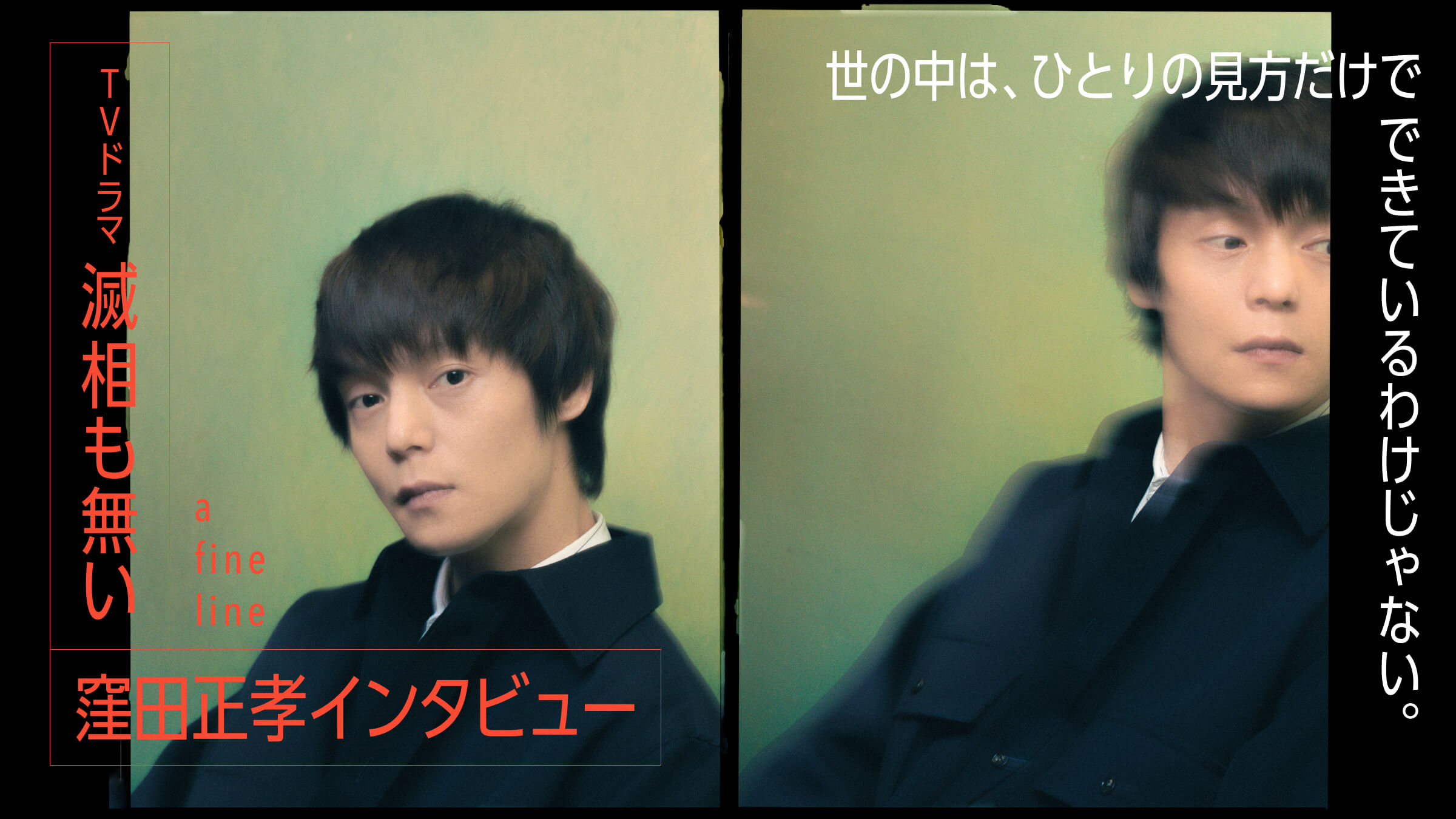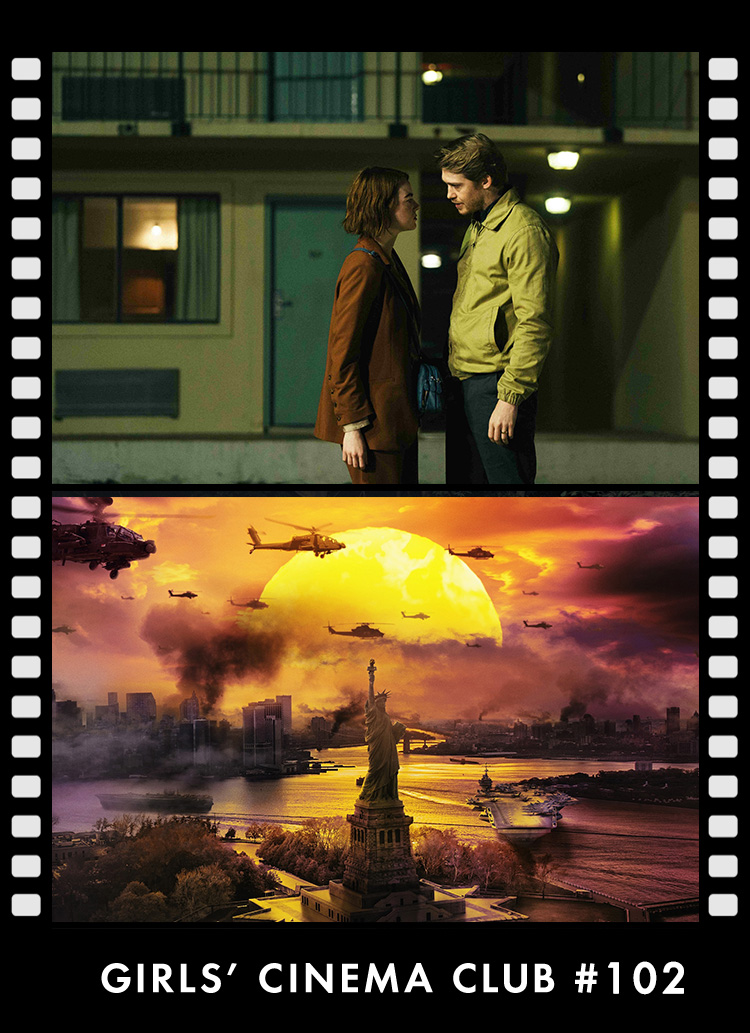It takes us out of our routine.
What made you decide to appear in this film?
Kubota: Last year, I was supposed to work with Kato-kun (Director Kato) on a stage production, but I had to pull out due to a neck injury, which was frustrating. . Just as I was hoping to get revenge somewhere else, I received the offer. The role of Okamoto was originally set up as a woman, but it was changed to a man and they wanted me to play the role, and I said, "By all means. That was the beginning.
By the way, what do you usually look for when deciding which film to appear in?
Kubota: Personally, I like scripts with little information. Of course, there are many forces at work, but I feel that drama adds up to too much. In the Japanese language, "mother" is "mom" or "mother" , "love" is "love" or "love", "love" is "love" or "love", "love" is "love" or "love", and "love" is "love" or "love". There are many ways to say "I love you," "I love you," "I love you," and so on. Sometimes we rely too much on words and make the actors say everything with their lines, and the script is complete. I personally think that part can be more vague and left up to the viewer. That's why I'm often interested in scripts that have little information ...... and that have situations that change rapidly rather than just explaining them. Of course, the script isn't the only thing to judge, though.

So, one of your motivations for appearing in the film was to work with Director Kato?
Kubota: . Yes, I have been interested in Kato for a long time. I have been interested in Kato-kun for some time, as I have been going to see his plays and movies in private. I thought he was very talented. I don't think I need to tell you that, but I think the world is aware of it. If I could work with such a person, I think it would open up a different kind of "hole" in the world. I like creators who break down stereotypes. As we live our lives, we tend to adhere to them.
What do you mean by "adhere"?
Kubota: When I participate in a film, the director and the location may change, but as an actor, the flow of my feelings and what I trace are the same. For example, I wake up in the morning, go to the set, put on my makeup, change into my costume, and so on. . It's all part of the routine. At my age, I wanted to meet more people who would take me out of that routine. One such person was Kato.

When we look at the production, it is both visual and theatrical. I think that is one of the novelties of this work, but for the performers, does this novelty also make it difficult?
Kubota: There is always a sense of difficulty when acting, but the excitement and thrill of the scene was greater. The director, who is at the helm of a big ship, has his own world and judges it clearly, so I can get on board without any worries. I think there was a common understanding that I could communicate what I could do and what my role was in the ship through my performance without having to put it into words.
Also, the ensemble actors (who play multiple roles by themselves) had a total of about 150 roles in episodes 1 through 8. For example, a female actor had to play a different role from the main character in each episode, sometimes as a friend, sometimes as a mother, and sometimes as a lover, which was more difficult and challenging. . But I think it must be very rewarding for me as an actor.
When I worked with director Takashi Miike, he once told me, "I want the extras to go home and say, 'Wow, this was an interesting scene,' and to drink beer and think it tasted really good. I really understand the nuance of that. In a video, it tends to show only the main characters, but everyone involved in the picture is creating the world, so there is a way to avoid showing the main characters. If you explain everything in one person's words and mind, you can only see that aspect, but since people are always playing catch with each other, you can express the other person's mind by capturing the person with whom you are playing catch with.

Anyway, I feel that Mr. Kato creates his works with a good sense of irony toward stereotyped expressions. Like him, there are always artists who resist stereotypes and the rules that people have set for themselves, and they never waver in their core. When I work with them, there is something that I get from them, something that makes me excited, and I feel that this work is really interesting.

In terms of defining the problem of TV drama production, I hear that it is not unusual for a TV drama to start filming without having a storyline defined until the final episode. How was that the case this time?
Kubota: It was all written up. I mean, the proposal I received was so thick that I might not be able to read it for a while (laughs). . so much so that it was thicker than the script. I think the director had probably already decided on how to incorporate the entire story from beginning to end.
But, as you asked, there are times when the story is completely different between the proposal and the actual drama. I thought this character was going to die. . These kinds of stories used to be difficult to mention, but now they have come to the surface, and it is no longer acceptable to pretend not to notice them. It is true that Japanese dramas, which had been Galapagosized, are changing under the influence of the outside world. The question is how to accept these changes and apply them. There are people who are trying to do this through television, and I am very attracted to such people. I think Kato is one of them.











